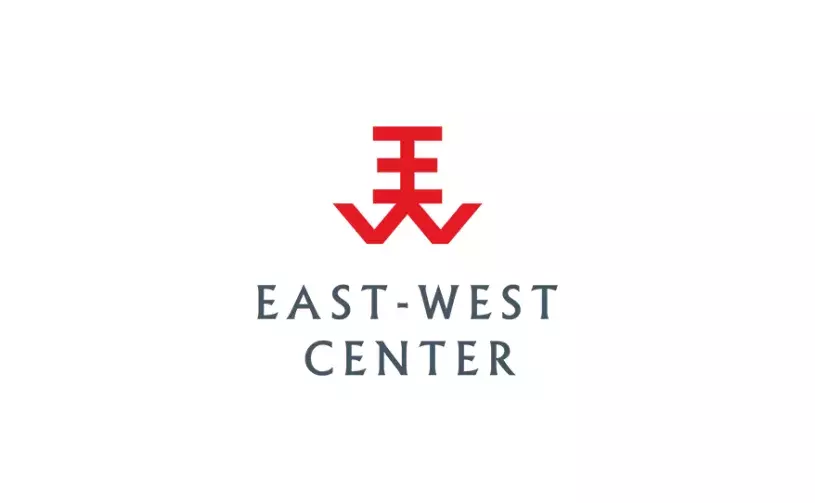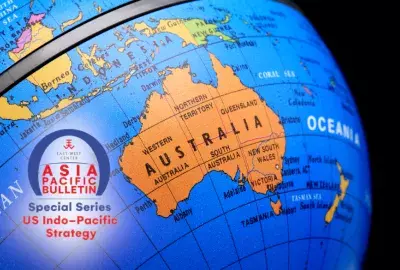Error message

|
Tommy K. S. Koh, former East-West Center affiliate scholar, explains that “As businesses face the unique and unprecedented challenge of significant border restrictions, longer-term structural and sector-specific measures will benefit from geographic specificity.” |
Amid the COVID-19 pandemic, ASEAN’s micro, small and medium-sized businesses have faced significant impact and are critical to economic recovery. The ASEAN Coordinating Committee on Micro, Small and Medium Enterprises (ACCMSME) and the Organisation for Economic Cooperation and Development (OECD) recently released a Policy Insight on boosting the resilience of MSMEs which is a critical and commendable effort to support small businesses in the region.
The Policy Insight highlights how ASEAN can gain from sharing information and best practices in supporting MSMEs. Proposals include combining short term stimulus with long term structural measures, adopting targeted measures for small businesses in deeply affected sectors, paying attention to delivery and performance, accelerating digitization, and considering social impacts. This is especially pertinent since MSMEs account for a vast majority of total business establishments in the Southeast Asia region and more than half of total employment in every ASEAN member state.
As businesses face the unique and unprecedented challenge of significant border restrictions, longer-term structural and sector-specific measures will benefit from geographic specificity. Increased regional readiness will particularly benefit small businesses. Apart from being able to benefit from regional supply chain connectivity as articulated in the Hanoi Plan of Action on 19 June 2020, regional readiness will also enable MSMEs to leverage ongoing ASEAN economic integration for future growth as safe travel corridors are established and cross-border flows increase.
Many shorter-term stimulus measures that seek to help MSMEs navigate this global pandemic are anchored in policies at national and local levels. This emphasizes localization and survival over regionalism and growth. With curtailed mobility and barriers to overseas markets, small businesses are forced to look inward for new sources of demand and revenue. This trend is driven by several factors related to the current prolonged border restrictions.
First, fiscal support for MSMEs is largely dispensed locally. The stimulus and structural measures that governments adopt for MSMEs tether them to local markets. For instance, support may be provided through rental rebates, salary relief for local employees, payment deferrals, or subsidized upskilling. The implementation of these measures is tied directly to local operations and employment. Because MSMEs also possess fewer internal resources, they are left with little excess liquidity and capital for outward focused capacity building preparations.
Second, the tentative reopening of local economies while border restrictions remain in effect creates a time lag where domestic markets are open before overseas markets. This is especially so for MSMEs that have yet to establish a foothold abroad. With the uncertain trajectory of the COVID-19 disease, the potential for subsequent waves of disease, and no fixed timeline for when border restrictions will be lifted, small businesses that seek to reduce risk may consolidate efforts to focus on local opportunities as their only or main source of demand and revenue.
Third, the global pandemic and disruption of supply chains has motivated states to seek self-reliance by reducing external dependencies. This had led to an increase in initiatives to build local capacity including reshoring efforts in some sectors. Such efforts have the dual effect of reducing regional demand while increasing local demand. MSMEs who face barriers accessing overseas markets because of restricted access and immobility may see this renewed local demand as an attractive reason to look inward and ensure short term survival.
An over-emphasis on local markets by MSMEs can result in a sluggish economic recovery when economies reopen and border restrictions are partially or fully lifted. In the absence of counterweights that sustain outward focus, capital diversions from regional growth to local survival will likely be sticky as they take time to reverse. Small businesses seeking to capture reopening dividends will benefit from using this lull in cross-border mobility to develop regional readiness. Beyond digitization which promotes general new market access, several strategies can aid this regional push.
First, upskilling initiatives targeted at MSMEs can equip employees with specialized skills to access regional opportunities. Such efforts may include language training initiatives, guidance on effective engagement with local economies and cultures, and insight into the socio-political nuances of regional states. Moreover, professionals in industries with existing ASEAN Mutual Recognition Agreements (MRAs) can be prepared and certified to common regional standards. Focusing upskilling efforts on increasing regional readiness will position small businesses well for when borders reopen.
Second, a focus on regionalism can be incorporated into new work routines. The closing of workplaces to minimize the spread of COVID-19 has disrupted routines and compelled businesses to adopt practices such as telecommuting and virtual technologies. These new arrangements offer unique opportunities to routinize and incorporate regional approaches. Webinars and virtual live sessions can connect MSMEs with the business chambers of ASEAN member states and the ASEAN Business Advisory Council in a frictionless manner. These measures can facilitate cross-border collaboration, nurture partnerships, and demonstrate the potential of regional connectivity and integration as businesses reimagine the future of work.
Third, while fiscal support for MSMEs will likely continue coming from national governments, some of this support can incorporate incentives and stipulations for small businesses to position themselves for regional success. By providing support for regional readiness, funders can counterbalance the capacity shift that MSMEs experience when chasing local opportunities while border restrictions are in place. This is a sensible and farsighted economic decision since nudging small businesses toward regional readiness and future opportunities will enable them to achieve scaled growth and contribute back to local economies when regional market access is progressively restored.
While national strategies to support small businesses may keep them afloat for now, MSMEs seeking longer term resilience and growth need to tap into opportunities and value offered by an open and interconnected economy. If small businesses are to pivot quickly and ride the rebound wave that accompanies reopened borders and renewed mobility, the COVID-19 “new normal” cannot just be about local markets. For Southeast Asian MSMEs to emerge stronger from this unprecedented crisis positioned for future success, they need a regional readiness boost.
|
Tommy K. S. Koh, former East-West Center affiliate scholar, explains that “As businesses face the unique and unprecedented challenge of significant border restrictions, longer-term structural and sector-specific measures will benefit from geographic specificity.” |
Amid the COVID-19 pandemic, ASEAN’s micro, small and medium-sized businesses have faced significant impact and are critical to economic recovery. The ASEAN Coordinating Committee on Micro, Small and Medium Enterprises (ACCMSME) and the Organisation for Economic Cooperation and Development (OECD) recently released a Policy Insight on boosting the resilience of MSMEs which is a critical and commendable effort to support small businesses in the region.
The Policy Insight highlights how ASEAN can gain from sharing information and best practices in supporting MSMEs. Proposals include combining short term stimulus with long term structural measures, adopting targeted measures for small businesses in deeply affected sectors, paying attention to delivery and performance, accelerating digitization, and considering social impacts. This is especially pertinent since MSMEs account for a vast majority of total business establishments in the Southeast Asia region and more than half of total employment in every ASEAN member state.
As businesses face the unique and unprecedented challenge of significant border restrictions, longer-term structural and sector-specific measures will benefit from geographic specificity. Increased regional readiness will particularly benefit small businesses. Apart from being able to benefit from regional supply chain connectivity as articulated in the Hanoi Plan of Action on 19 June 2020, regional readiness will also enable MSMEs to leverage ongoing ASEAN economic integration for future growth as safe travel corridors are established and cross-border flows increase.
Many shorter-term stimulus measures that seek to help MSMEs navigate this global pandemic are anchored in policies at national and local levels. This emphasizes localization and survival over regionalism and growth. With curtailed mobility and barriers to overseas markets, small businesses are forced to look inward for new sources of demand and revenue. This trend is driven by several factors related to the current prolonged border restrictions.
First, fiscal support for MSMEs is largely dispensed locally. The stimulus and structural measures that governments adopt for MSMEs tether them to local markets. For instance, support may be provided through rental rebates, salary relief for local employees, payment deferrals, or subsidized upskilling. The implementation of these measures is tied directly to local operations and employment. Because MSMEs also possess fewer internal resources, they are left with little excess liquidity and capital for outward focused capacity building preparations.
Second, the tentative reopening of local economies while border restrictions remain in effect creates a time lag where domestic markets are open before overseas markets. This is especially so for MSMEs that have yet to establish a foothold abroad. With the uncertain trajectory of the COVID-19 disease, the potential for subsequent waves of disease, and no fixed timeline for when border restrictions will be lifted, small businesses that seek to reduce risk may consolidate efforts to focus on local opportunities as their only or main source of demand and revenue.
Third, the global pandemic and disruption of supply chains has motivated states to seek self-reliance by reducing external dependencies. This had led to an increase in initiatives to build local capacity including reshoring efforts in some sectors. Such efforts have the dual effect of reducing regional demand while increasing local demand. MSMEs who face barriers accessing overseas markets because of restricted access and immobility may see this renewed local demand as an attractive reason to look inward and ensure short term survival.
An over-emphasis on local markets by MSMEs can result in a sluggish economic recovery when economies reopen and border restrictions are partially or fully lifted. In the absence of counterweights that sustain outward focus, capital diversions from regional growth to local survival will likely be sticky as they take time to reverse. Small businesses seeking to capture reopening dividends will benefit from using this lull in cross-border mobility to develop regional readiness. Beyond digitization which promotes general new market access, several strategies can aid this regional push.
First, upskilling initiatives targeted at MSMEs can equip employees with specialized skills to access regional opportunities. Such efforts may include language training initiatives, guidance on effective engagement with local economies and cultures, and insight into the socio-political nuances of regional states. Moreover, professionals in industries with existing ASEAN Mutual Recognition Agreements (MRAs) can be prepared and certified to common regional standards. Focusing upskilling efforts on increasing regional readiness will position small businesses well for when borders reopen.
Second, a focus on regionalism can be incorporated into new work routines. The closing of workplaces to minimize the spread of COVID-19 has disrupted routines and compelled businesses to adopt practices such as telecommuting and virtual technologies. These new arrangements offer unique opportunities to routinize and incorporate regional approaches. Webinars and virtual live sessions can connect MSMEs with the business chambers of ASEAN member states and the ASEAN Business Advisory Council in a frictionless manner. These measures can facilitate cross-border collaboration, nurture partnerships, and demonstrate the potential of regional connectivity and integration as businesses reimagine the future of work.
Third, while fiscal support for MSMEs will likely continue coming from national governments, some of this support can incorporate incentives and stipulations for small businesses to position themselves for regional success. By providing support for regional readiness, funders can counterbalance the capacity shift that MSMEs experience when chasing local opportunities while border restrictions are in place. This is a sensible and farsighted economic decision since nudging small businesses toward regional readiness and future opportunities will enable them to achieve scaled growth and contribute back to local economies when regional market access is progressively restored.
While national strategies to support small businesses may keep them afloat for now, MSMEs seeking longer term resilience and growth need to tap into opportunities and value offered by an open and interconnected economy. If small businesses are to pivot quickly and ride the rebound wave that accompanies reopened borders and renewed mobility, the COVID-19 “new normal” cannot just be about local markets. For Southeast Asian MSMEs to emerge stronger from this unprecedented crisis positioned for future success, they need a regional readiness boost.







